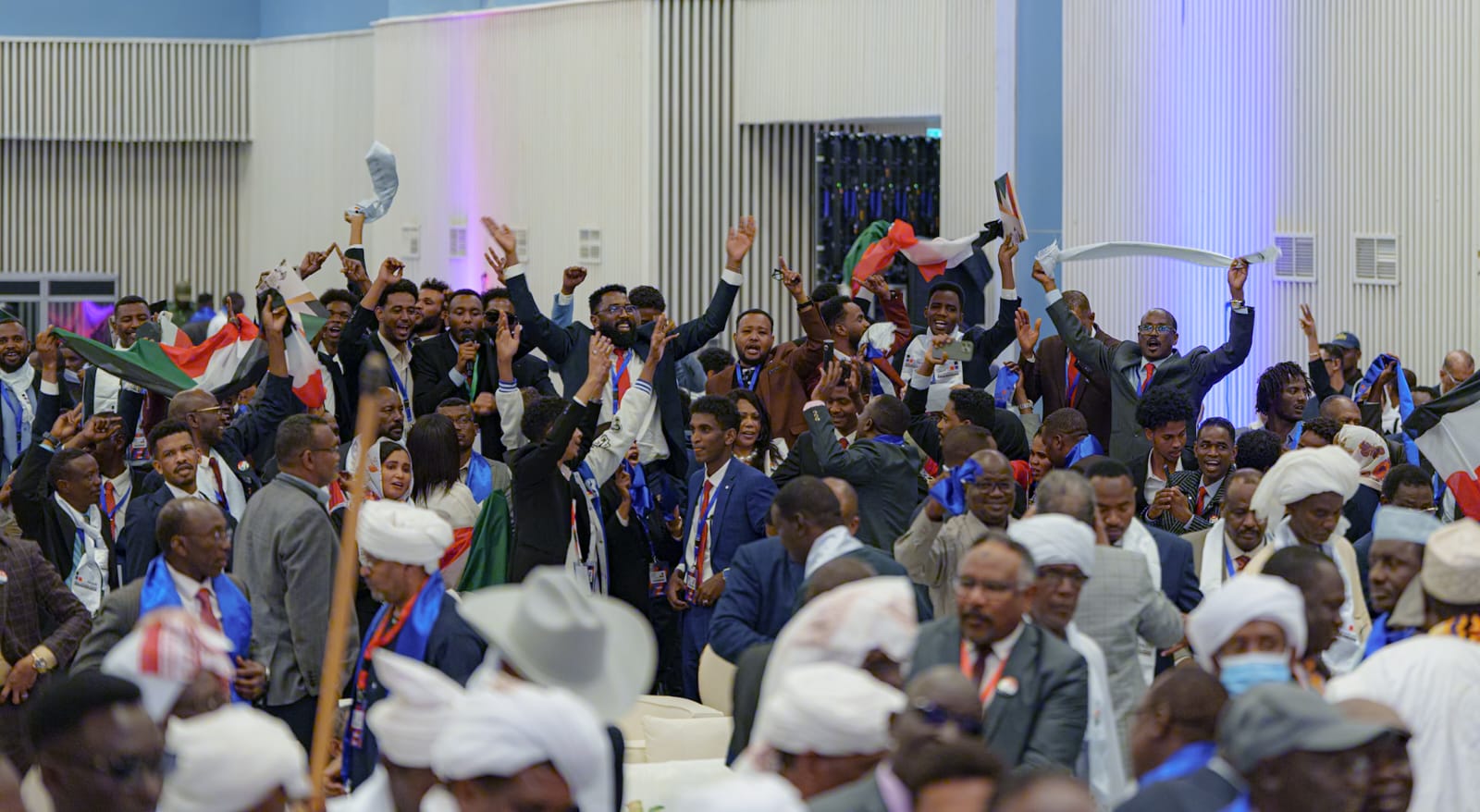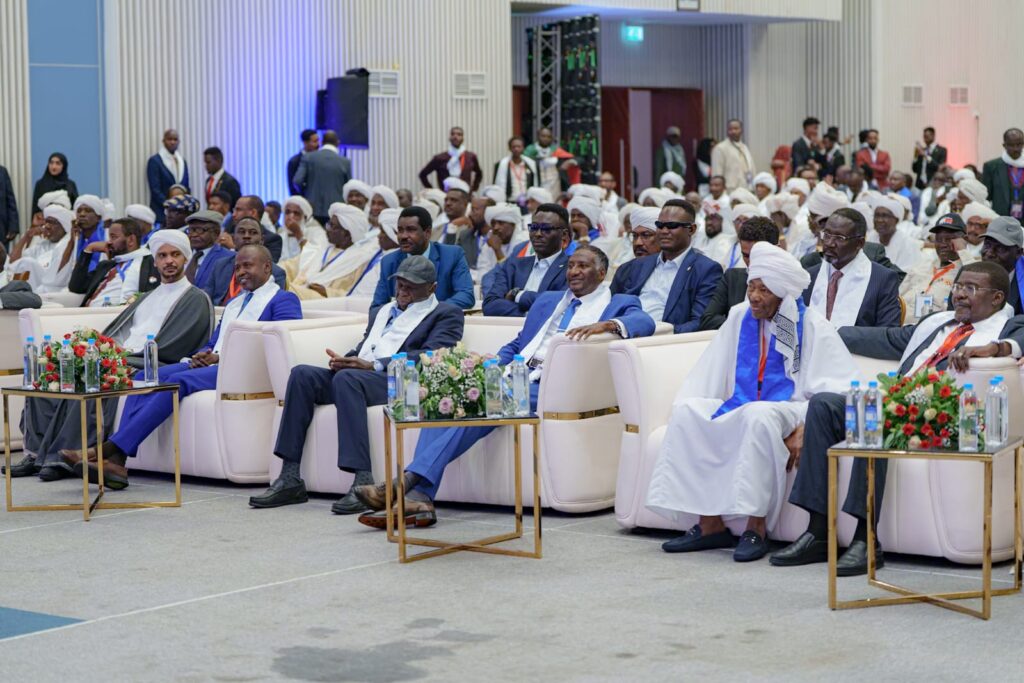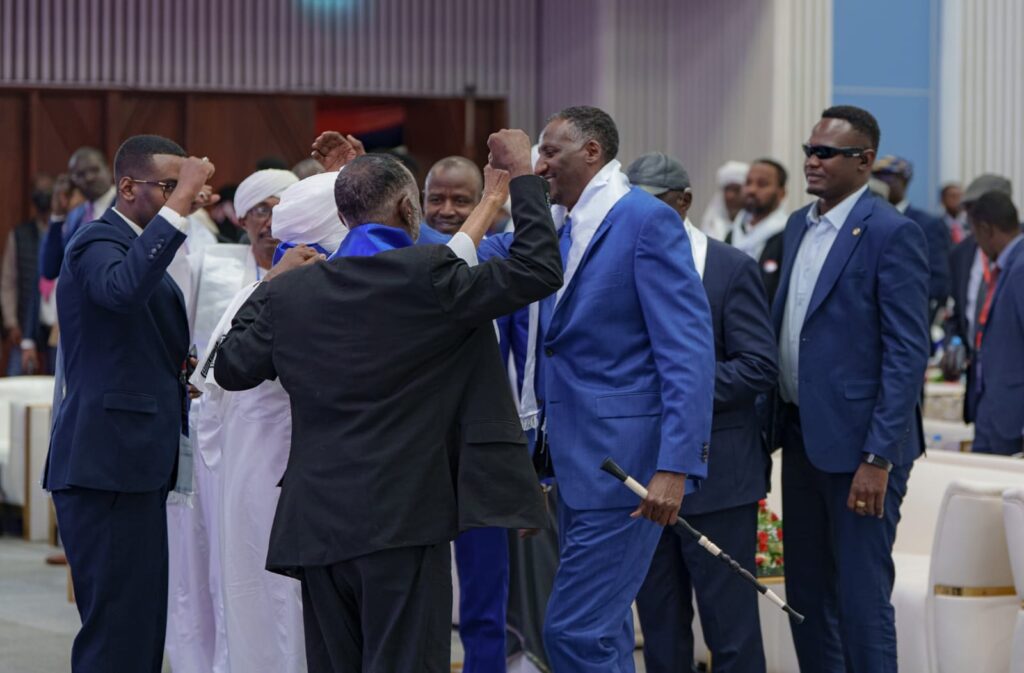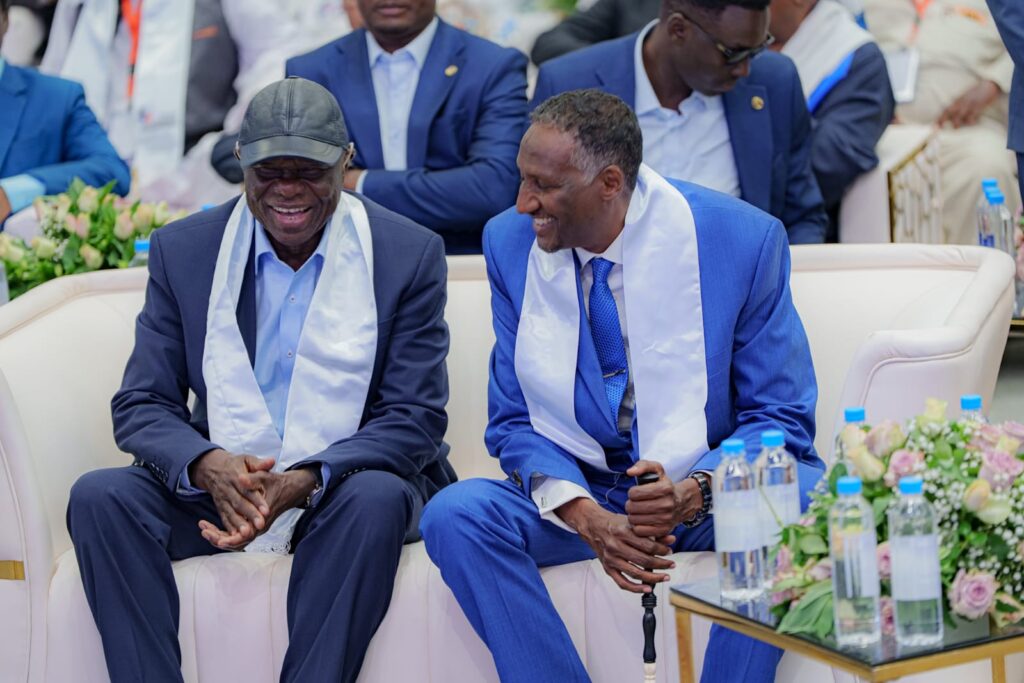
In a significant move, the Rapid Support Forces (RSF) and 23 allied groups signed a foundational charter (Tasees) late Saturday, establishing the framework for a civilian government in regions under their control.
The signing, held in Kenya’s capital Nairobi, was conducted under strict media blackout and heightened security, sparking significant controversy in both Sudan and Kenya.

The event saw the participation of prominent Sudanese figures, including National Umma Party leader Fadlallah Burma Nasser, RSF commander Abdul Rahim Dagalo, and Joseph Toka, Deputy Chairman of the Sudan People’s Liberation Movement-North (SPLM-N).
Other signatories included Hadi Idris of the Sudan Liberation Movement-Transitional Council, Taher Hagar from the Sudan Liberation Forces-Gathering, and Suleiman Sandal of the Justice and Equality Movement, among others. Several independent and opposition figures also signed, such as former Sovereign Council member Mohamed Hassan Al-Tayashi and representatives of the Syndicate and Professional Coordinators, Beja Congress, Free Lions Party, and Sudan Liberation Movement-Second Revolution.
Protests erupted in Sudan’s Darfur regions, including Nyala and Al-Geneina, supporting the formation of the new civilian government.
A “Peace Government” with Ambitious Goals
The Tasees charter outlines the creation of a “peace government” designed to end ongoing conflicts by addressing their root causes. The new government is tasked with providing humanitarian aid, uniting Sudanese citizens, and preserving the country’s voluntary unity.
Additionally, the charter commits to halting civilian infrastructure violations, restoring constitutional rights such as access to health and education, and ensuring civilian rule.
A key point of the agreement is the goal of reforming Sudan’s armed forces into a unified, professional national army, representing all Sudanese citizens and safeguarding the nation’s sovereignty.
However, SPLM-N leader Abdel Aziz al-Hilu, in an interview with Sky News Arabia, dismissed the immediate integration of fighters from factions signing the charter into a single army. He stated that such a move would only occur after a comprehensive peace agreement, involving the Sudanese government in Port Sudan.
Kenya Defends Its Role Amidst Criticism
Sudan’s junta-controlled government condemned Kenya’s involvement, calling the hosting of the ceremony an act of hostility against Sudanese people. Kenya defended its stance, describing its role as a facilitator aimed at helping resolve the conflict that has been ongoing since April 2023.
Principles of Secularism and Self-Determination
The Tasees charter promotes a secular, democratic, and decentralized state, free from ethnic, cultural, or religious allegiance. It also allows political organizations based on religious grounds. A notable inclusion is the principle of self-determination, permitting the people to choose their path should any future constitution fail to secure secularism or fundamental rights.

The SPLM-N has strongly advocated for secularism or the right to self-determination as essential components in any political agreements.
Shifting Power Dynamics and SPLM-N’s Key Role
The SPLM-N’s decision to join the Tasees coalition has sent shockwaves through Sudan’s political system, analysts say. This strategic alliance with the RSF is seen as a challenge to the authority of junta leader Gen. Abdel Fattah al-Burhan and could alter the course of the ongoing conflict.
Al-Hilu’s faction, historically rooted in Sudan’s civil war, has been a significant force in the Nuba Mountains, resisting Sudanese junta control. His joining the coalition is viewed as a pivotal moment in Sudan’s political crisis, possibly ending years of deadlock among factions.
“This alliance could mark a turning point in Sudan’s crisis,” one analyst remarked, highlighting its potential to dismantle longstanding systemic issues dating back to Sudan’s independence.

A New Hope for Sudan’s Marginalized Communities
RSF negotiator Ezzedine Al-Safi called al-Hilu’s decision to join the coalition a historic victory for Sudan’s marginalized communities. “It represents over 60 years of struggle and a chance to rebuild Sudan on new foundations of equality and justice,” Al-Safi said.
Political analyst Al-Jamil Al-Fadil added that al-Hilu’s inclusion gives the coalition a national scope, expanding its political and geographic reach beyond regional or ethnic affiliations. This could allow the RSF to solidify control in key areas while sidelining al-Burhan’s junta.
As the signing of the Tasees charter signals a new chapter in Sudan’s turbulent political landscape, the coming months will determine whether this alliance can bring lasting peace or further deepen the divisions in the country.
